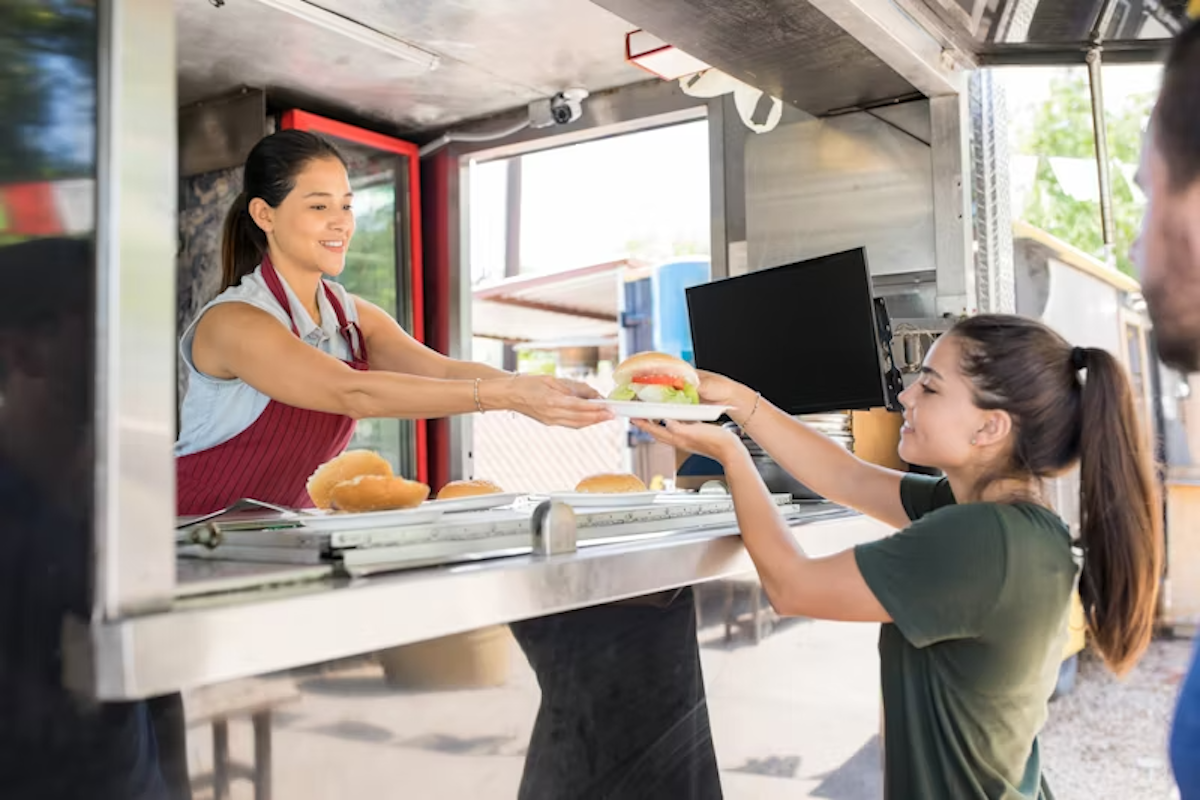18 min read
The Winning Practices of Any Profitable Food Truck Business
Running a food truck business takes more than good food and catchy branding. To succeed, you need to make other strategic decisions behind the scenes...
6 min read

Let’s break down each step you need to take before building a clear, confident business plan that sets you up for success.
Begin your plan with a concise overview of your food truck’s core concept and mission. Keep it short but powerful:
Think of it as your food truck’s first impression—make it count.
Describe who you are, what you sell, and where you fit in the market. Ensure it’s clear and specific:
The better you know your audience and competitors, the easier it is to carve out your own space.
Your menu should be exciting, easy to execute, and built for profit. Keep these points in mind:
A well-thought-out menu sets the foundation for a smoother food truck operation and faster service.
A strong setup keeps your food truck venture operating efficiently and ready for daily challenges. Think through the basics:
Well-planned operations create a strong foundation for long-term success.
It’s important to understand the costs you’ll face upfront and plan for a healthy start. Let’s walk through it.
Starting a food truck takes more than buying a standard vehicle. You’ll need to plan for a few important costs. Here’s what to expect:
Outline every major expense you expect from the beginning. It’ll make funding easier and keep your launch on track.
Your pricing and revenue strategy will shape how quickly your food truck becomes profitable. Think about these key areas:
Building multiple revenue streams helps protect your business and creates more ways to grow over time.
Once you're up and running, keeping track of your monthly costs is key to staying profitable. You’ll need to balance:
Understanding where your money goes each month helps you protect your margins and identify areas to save without cutting quality.
Insight on when you’ll break-even is critical for planning and staying motivated. Here’s what to focus on:
Clear financial projections help you stay on track and make smarter decisions as your business grows.
Great food gets you noticed, but great branding keeps customers coming back. Let’s explore how to make your brand unforgettable.
Your brand is more than your menu. It’s how people recognize, remember, and connect with your business. Start with the basics:
Strong branding builds loyalty and helps turn first-time visitors into regulars.
An active online presence helps you attract more customers and stay top of mind. Strengthen your brand online by:
Consistency online builds buzz and drives real-world traffic to your food truck.
Where you park your food truck matters just as much as what you serve. Boost your visibility by:
Strategic locations help you build a loyal customer base and get your name out faster.
Every food truck business needs to meet legal requirements to operate safely and stay protected. Let’s break down what you’ll need to cover.
Before you start selling, ensure your paperwork is in order:
Staying compliant helps you avoid fines, delays, and unexpected problems down the line.
Choosing the right business setup affects everything from taxes to legal protection. Here’s what to know:
The right structure and smart bookkeeping help you stay organized and financially healthy.
Once your first truck is steady and profitable, it might be time to think bigger. Growth leads to new revenue, but it also brings new challenges. Let’s look at how to expand smartly.
Adding a second truck to your business model is a big move. Make sure your first location is consistently profitable with smooth operations before expanding. Standardize your menu, workflow, and training so everything stays consistent across trucks. New locations can boost your brand, but only if your systems are ready to handle more customers and complexity.
Some food trucks eventually grow into full restaurants. If you have a loyal following, steady profits, and a clear brand, opening a physical location can be the next step. Keep your core menu and customer experience strong to make the transition smooth and keep your fans excited.
Catering technology can help your food truck grow faster and work smarter. Here’s how to put it to work:
Small tech upgrades can lead to bigger profits and stronger customer relationships over time.
Thinking about starting your own food truck? Find quick answers to common questions below.
Food trucks make around $100,000 to $300,000 a year. Profitability depends on costs, pricing, location, and customer demand, among other factors.
Most food trucks aim to make $300 to $1,000 in profit per day. However, this can vary significantly by location, sales, local event schedules, and operating costs.
Around 60% of food trucks fail within their first few years. It is often due to poor planning, high costs, bad locations, or tough competition.
Tacos, burgers, and sandwiches are some of the most profitable food truck items. They have low ingredient costs and high customer demand.
Running a food truck is hard work. It takes long hours, strong planning, good marketing, and the ability to handle busy rushes.
Most food trucks have a 5 to 10-year life span. Good maintenance, upgrades, and smart management can help extend their longevity.
Young adults in their 20s and 30s eat from food trucks most often, especially in major cities. They love quick, affordable, and delicious food options.
A detailed business plan sets you up for success. It keeps you organized, focused, and ready for whatever comes your way. Now’s the time to take the first step. Start drafting your food truck business plan today.
Need extra help growing your business? Download the Paytronix Online Ordering Guide or book a demo to boost your marketing, loyalty programs, and digital ordering.